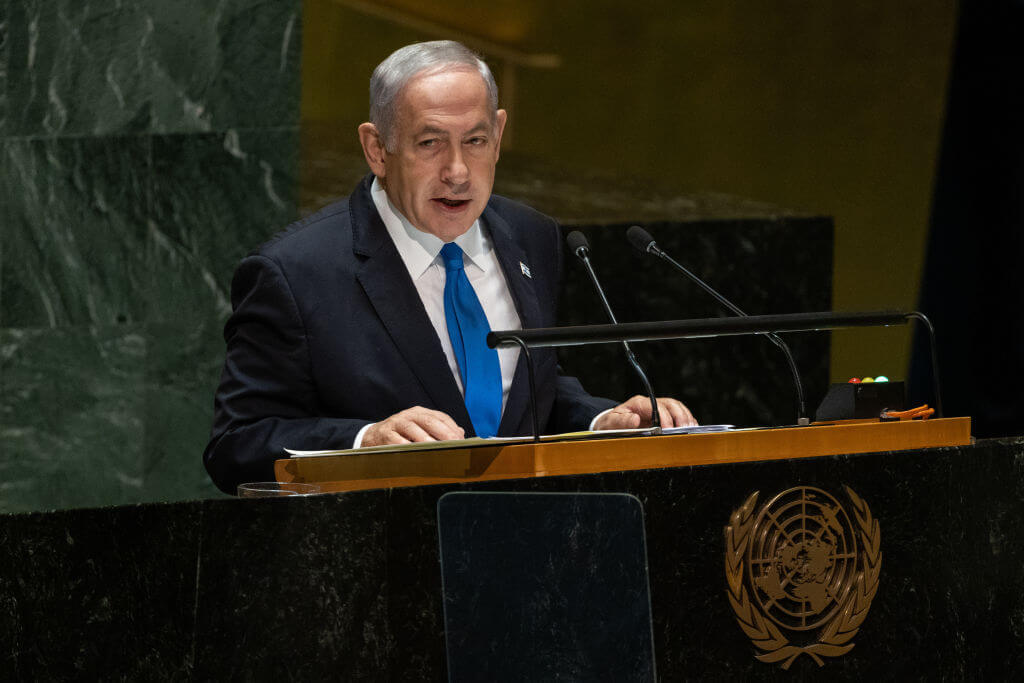Loving Israel, Hating How It’s Treating Ethiopians

A new Jewish immigrant during a welcoming ceremony after arriving in Israel on a flight from Ethiopia. Image by Getty Images
Much has been written and said about the social and economic disparities between Ethiopian Israelis and the general Israeli population. The numbers are nothing short of shocking. For example, 40% of Ethiopian men serving in the Israel Defense Forces have spent time in military jails, an incarceration rate 760% higher than their proportion in the general society, and double the national average. This despite the fact that 90% of Ethiopian men sign up for service, versus 75% of Israeli men overall.
Over half of Ethiopian immigrant families, and nearly two-thirds of Ethiopian children, live below the poverty line, with the average monthly household income for Ethiopian families being more than 6,000 shekels below the national mean. There is more, but this is enough.
My own experience, being, as I am, but one Ethiopian Israeli man, represents what the numbers show that so many — too many — of my brethren have endured.
As a uniformed volunteer police officer with the Harel Brigade, I was conducting my regular evening patrol one day in March 2011 when I heard a fellow officer’s radio call: “The Ethiopians are giving us a hard time.” As I appeared on the scene, I observed a young Ethiopian man, an IDF soldier on his weekend leave, already restrained with handcuffs, being beaten by my colleague. When the other officer would not respond to my spoken pleas and demands to cease his unwarranted aggression, I laid aside my weapon and stepped in to stop him physically. After I pushed him away and helped to calm everyone down, they left for the precinct with their battered, bewildered arrestee in tow, and I, too, left the scene — shaken by what I had witnessed, but grateful that I had been able to diffuse the situation before worse damage was done.
Nothing could have prepared me for the response I received upon meeting my commanding officer when I got back to my own station. I was told, without discussion or due process, that I was to be suspended from service for a period of two months, following which I could return to duty under probation, unarmed, for another two months, before being reinstated fully to my position. This was in reward for my defense of the Ethiopian youth, whose crime, I later found out, was drinking alcohol in public while on leave with his army buddies — a crime that I knew, from its frequent occurrence, to be punished typically by pouring out the contents of the drink on the ground and sending the delinquent revelers home, but never, in my experience, by placing the offender under arrest, and certainly not by dealing him or her blows.
While nothing tragic transpired here, and this incident pales in comparison to tales of injustice encountered elsewhere, it is my own personal brush with the double standards and insidious prejudice that too often defines the experience of Ethiopian Jews in their adopted homeland.
But let me not leave it at this, for it is painful, honestly, for me to speak in this way of the land that I love and yearned to live in throughout my childhood and adolescence in Addis Ababa. I am not, however, bringing to light anything that is not already known. And as a doctor must examine the site of disease to cure it, we must view these problems unflinchingly if we are to solve them; we must expose our wounds in order to heal. But as we do when we tell our people’s story at the Passover Seder each year, allow me to begin with the shameful but conclude with the praise, which Israel does, despite its shortcomings in this regard, so richly deserve.
The State of Israel has done so much to help us Ethiopian Jews fulfill our vision and dream. After hundreds of years, we, too, have experienced the exhilaration of being reunited with our brothers and sisters in the land of our forbearers. Never do I lose sight of this privilege or take the gift of our homecoming for granted. Yet this is why I feel all the more urgency in addressing the untenable status quo with which the Ethiopian community in Israel lives. Too long have efforts to modify it been ineffective.
When I speak of addressing the status quo, I am thinking, most immediately, of the unjustified overrepresentation of Ethiopians in the prison system, both military and civilian. Let us conduct a systematic review of the circumstances that gave rise to these prison sentences and commute those that were clearly imposed with racial bias at play.
Next, I turn my attention to our schools, where racial bias is born and nurtured. Here, another systematic review is called for, to assess the quality of services provided to Ethiopian students. Are Ethiopian children and young adults being accepted into Israeli educational institutions equitably, from the elementary level through college and graduate school? And, when they earn degrees, what is the nature of their employment opportunities, and what career avenues are open for them to pursue? Until we ensure that these are comparable for Ethiopian youth and others, racial prejudice will continue to pervade Israel’s social infrastructure.
Third, there is the allocation of social services — particularly housing and financial assistance — to consider. Eligible Ethiopian Jews too often remain without the benefits to which they are fully entitled. My mother, for example, has been sharing a tiny apartment with nonrelatives in an absorption center since 2008, her 7-year-old application for public housing languishing on an interminable waiting list, long after people of other races who arrived more recently have been placed. Again, these open files must be reviewed and dealt with equitably.
We, as a community, cannot rely on external parties to advance our cause. The very pain that we feel must be directed toward finding a way to grow beyond it. While we need and seek the cooperation and support of the broader Israeli population, we within the Ethiopian community must also stand up and become agents of change. At the same time, the Israeli government must acknowledge our abilities in this realm and confer the power and resources we will need to be successful.
As I complete my doctoral studies here in the United States, and make plans to move back to Israel with my new wife and our baby son, I am filled with hope for what the future has to offer. And yet, sometimes I wonder whether the same kinds of professional opportunities open to me in America will be accessible in Israel, and what kind of life awaits my son in the next generation. The Ethiopian community in Israel represents a huge, largely untapped source of social capital that can add untold value to the nation’s considerable endowments. Let us work together to ensure that it is utilized to the fullest degree, for our mutual gain.
Shmuel Legesse is a doctoral student at Yeshiva University’s Azrieli Graduate School of Jewish Education and Administration.
A message from our CEO & publisher Rachel Fishman Feddersen

I hope you appreciated this article. Before you go, I’d like to ask you to please support the Forward’s award-winning, nonprofit journalism during this critical time.
We’ve set a goal to raise $260,000 by December 31. That’s an ambitious goal, but one that will give us the resources we need to invest in the high quality news, opinion, analysis and cultural coverage that isn’t available anywhere else.
If you feel inspired to make an impact, now is the time to give something back. Join us as a member at your most generous level.
— Rachel Fishman Feddersen, Publisher and CEO























